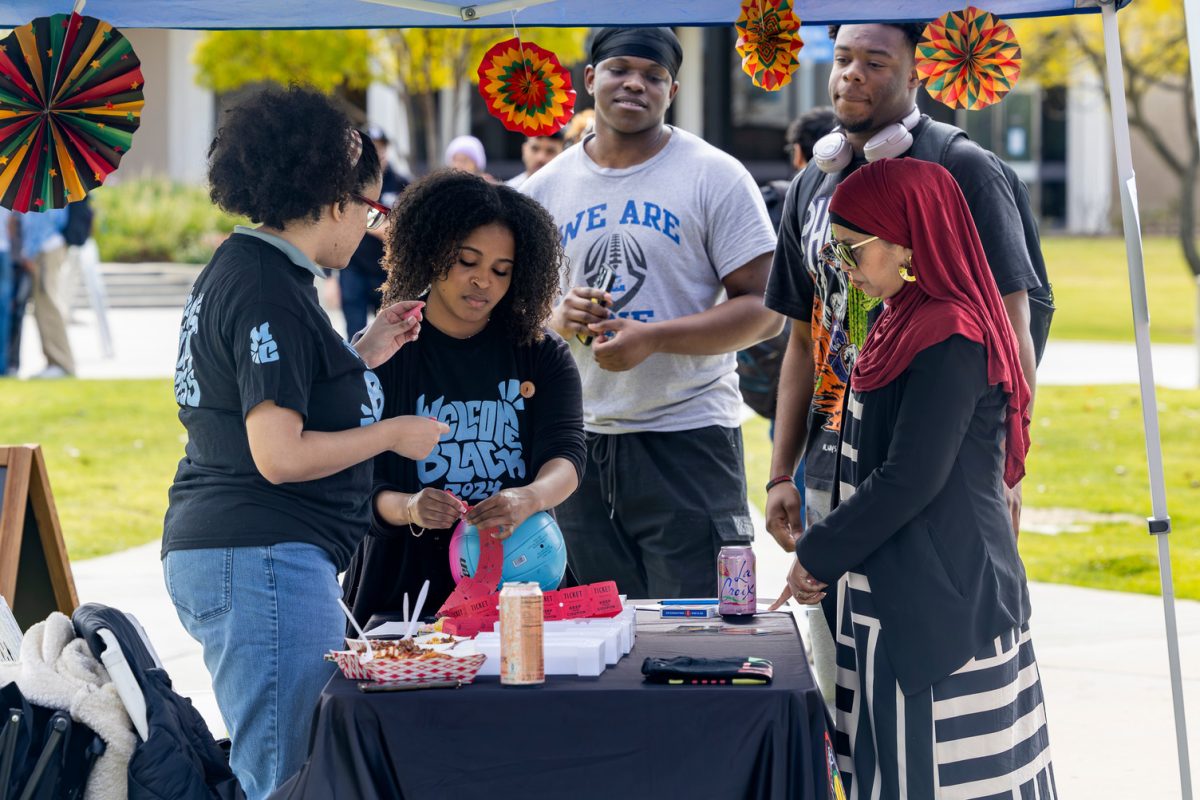Democracy was once a bad thing and considered an unstable form of government in Ancient Greece.
Anthropology Professor Paul Mattson told how the tables have turned for democracy and the idea of a written constitution in the world and its road through history to its current high standing today in his lecture entitled “Constitutional Democracy: A Global Revolution.”
Mattson said that some constitutions are good and abided by, while others are not.
“They aspire to seem democratic,” he said. “Others are just plain lip service.”
The Multicultural Day lecture attracted more students than the Humanities building classroom could accommodate, leaving some students to sit on the floor behind the podium.
Mattson brought up numerous examples from American history, as well as nations that had a constitution but democracy did not exist like the Soviet Union, Nazi Germany and communist China.
“Stalin purged 20 million of his own people,” said Mattson. “He was perfect at it. Horrifyingly so.”
Despite the communist dictator’s atrocities, the Soviet Union did have a written constitution that granted many democratic freedoms, he said, such as press and religion.
“It was a model of BS,” said Mattson. “A written document is not enough. It has to be something the people and the government abide by.”
Mattson left his audience with a little-known benefit to democracy in the world, but cautioning not to force the idea on anyone.
“Once they’re in place, democracies have been astonishingly unwilling to go to war with each other,” he said. “Young, imposed democracies, especially those surrounded by non-democracies are a powder keg.”






